Life with MSA – Donald’s Story
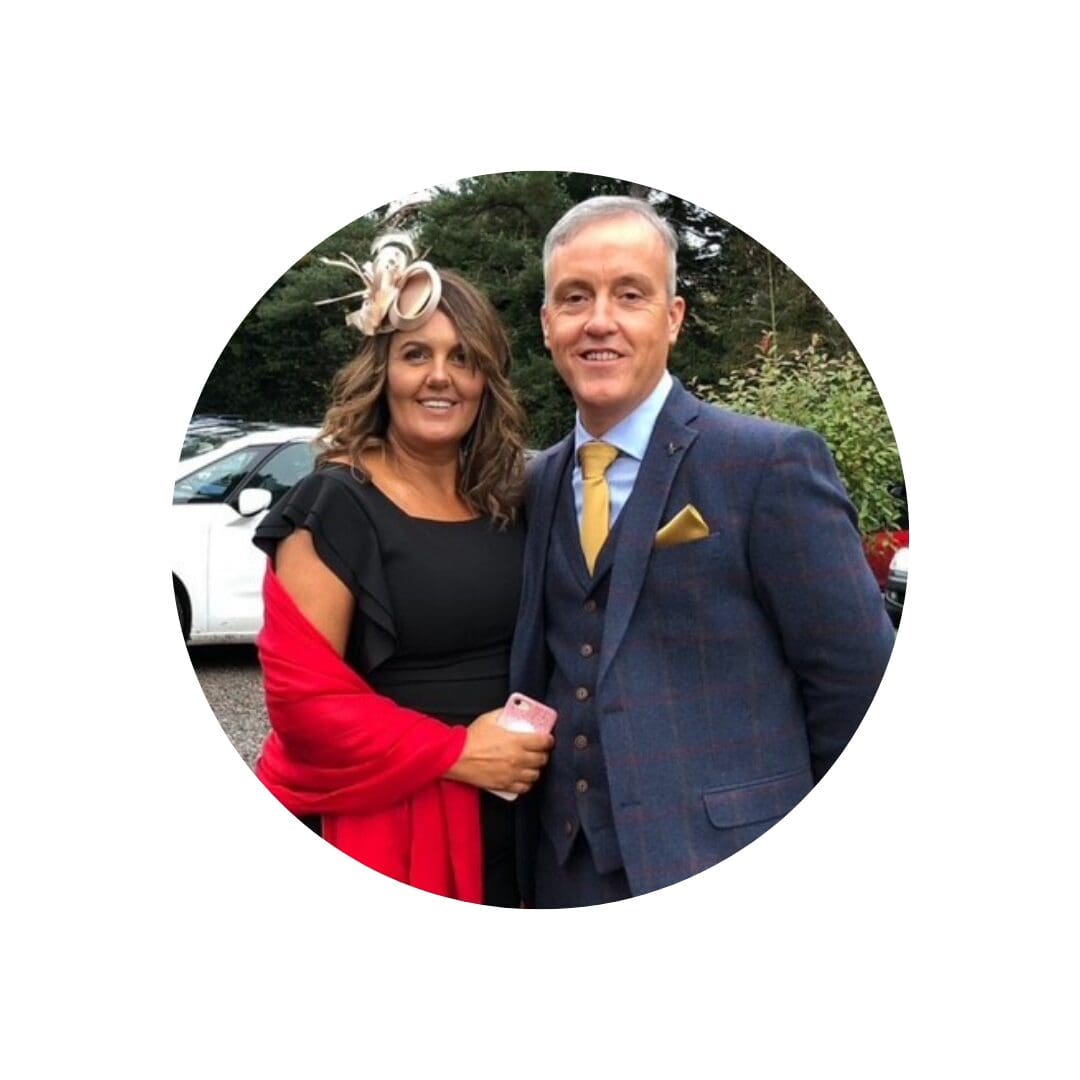
What has changed most about your life since your loved one was diagnosed with MSA?
Initially in 2020 just after the first lock down of Covid we were told that Fiona had Young onset Parkinson’s disease, this was devasting to our family given Fiona was only 49 years old, then in 2023 three months after my mother had passed away quickly with cancer, I remember Fiona and I sitting in a small room in Nine Wells Hospital in Dundee being told that actually it wasn’t Parkinson’s but instead MSA, I remember at that time being numb to the news and not really taking onboard what that meant. I remember leaving the hospital and Fiona and I saying to each other, let’s not talk about this until we get home so we can digest this news, the drive was a quiet 3 hours long.
Since Fiona was diagnosed with MSA life changes on a daily basis, and often revolves around managing her daily needs, whether that be mobility, her personal hygiene, medication or feeding and given MSA progresses relentlessly, as time goes by your involvement becomes greater and greater as you watch your love one lose the ability to do certain things. I have found grieving the little losses over time to be extremely hard, watching your loved one slowly losing independence and having to deal with the knowledge that she has a progressive disease that there is no cure for breaks my heart. I’ve found things happen in blocks, from firstly the falls, then a walking stick, then a chair lift in the house to then watching Fiona having to stop driving and being fully dependant on a wheelchair brings emotional stress for us both.
Throughout the last couple of years it’s been notable that your social circle changes, friends and even family drift away I’m sure because they either don’t know what to do or what to say, however on the other hand friends and family that you did not expect to come to your assistance have been a pillar of support, whether that has been helping Fiona with daily tasks or to allow me to continue to work full-time or even just sitting chatting to her for an hour. The help from those individuals does not go unnoticed and they do not know how valued their support has been to us both.
Sadly, as this disease has progressed our relationship has changed, my role shifts from partner to primary care giver which has changed my own sense of who I am.
Had you heard of MSA beforehand?
No, MSA is not something that anyone had heard of in our family prior to Fiona’s diagnosis.
How do you feel about the changes MSA has made to your life?
MSA has changed my life dramatically, I often feel a mix of overwhelming emotions and profound internal changes as we navigate the progression. As things worsen, I have found immense love and loyalty towards Fiona, but I am consistently grieving, not just for the eventual loss, but for the slow loss of who Fiona used to be. Daily I find myself mourning little pieces of her every day, and when my daughter and I look back at old photos/videos the realisation of MSA hits hard.
MSA is relentless, there is no break from it and there are days when I open my eyes and think “not today please!” It is isolating, lonely, I’ve lost my identity as I have now become a caregiver but most of all it can be draining – emotionally, physically, mentally but you have to take the positives out of it however small they are and cherish each day.
Was there a particular point when you started to identify as a ‘Carer’
Yes, when everyday tasks started to pile up, I was doing more, helping Fiona in the shower, washing hair, getting dressed, doing tablets. It began to feel like my role was no longer one of support but essential, and also when I started to need support myself, at first I didn’t notice and for a long-time I was in denial but the professionals can see the burn out and exhaustion and they stepped in to organise the support that we required.
Has anything from the MSA Trust been helpful while caring for someone living with MSA.
Yes, factsheets and pointing us in the right direction of support groups. Like all serious illnesses at the beginning, you do not know how to navigate through, however it is not until you begin to immerse yourself in the issue that your awareness builds, and you start to find the correct direction to follow.
What does the MSA Trust mean to you?
The trust is my go-to, it also allows me to connect to others in a similar situation to seek the guidance and knowledge I require. It also allows me to find out any information I require whether that be aids to assist or support groups.
What are the challenges you have faced?
The physical demands – mobility issues, incontinence care, feeding and choking risks and sleep disruption.
Emotional Strain – watching the decline of Fiona, grieving for the individual that I first meet and feel in love with.
Communication – As the condition worsens understanding becomes harder, as speech slows and becomes more slurred this leads to frustration and miscommunication.
Navigating the health system – Finding knowledgeable healthcare professionals for such a rare disease. We have had professionals tell us they have had to google MSA to understand what it is as they have never heard of it.
Making difficult decisions – When to start using a wheelchair, when to ask for outside help, taking control to ensure the safety of your loved one whilst not making them feel as if they have lost all their identify.
Is there anything you are grateful for?
Yes, a deeper connection with Fiona than ever before, we have said more with glances than we have ever said with words and this is because of the huge trust we have placed on one another to navigate our way through this terrible situation. I have found a new perspective and appreciation for life; I would like to think I no longer sweat the small stuff and now know what really matters. I’ve also discovered an inner strength that I never knew I had, when Fiona was diagnosed with MSA we have just lost my mum, I’ve always felt I never got the opportunity to grieve my mother’s passing in a way I should have been given, but having to deal with the challenges we have faced has made me realise I am far more resilient, resourceful and capable than I ever imagined. I am also hugely grateful to my employers for the reasonable adjustments they have made to my workload, and hugely grateful of the support from others, there has been some brief moments of connection I have had with others where they have just listened, said nothing, no judgement made that has meant the world. Finally, I have found clarity about love, not the romantic or easy version of what love is but the kind that shows up daily, even when it is messy, exhausting, and painful – This is love in its rawest, realest form!
Any other thoughts you wish to share?
MSA is rare and is a very isolating, however you are not alone, even when it feels like it. You will feel every emotion and that is okay, you will experience anger, guilt, grief, love, helplessness but remember there is no wrong way to feel. Some days I have struggled to pull my head off the pillow, but I have found the strength that I never knew I had to continue. It is okay to have a difficult day.
Take help, even if asking is hard. – I learnt that I was trying to do everything out of pride and love, but I began to feel burnout. It wasn’t until someone told me that rest is part of my care did I start to be more accepting of care. I still think I could do better when it comes to rest but that’s work in progress.
You will make mistakes, you will feel like you are not doing enough, caregiving is hard and at times it has made me into a person I don’t recognise however you are doing something that most people don’t fully understand or will ever have to deal with so be kind to yourself.
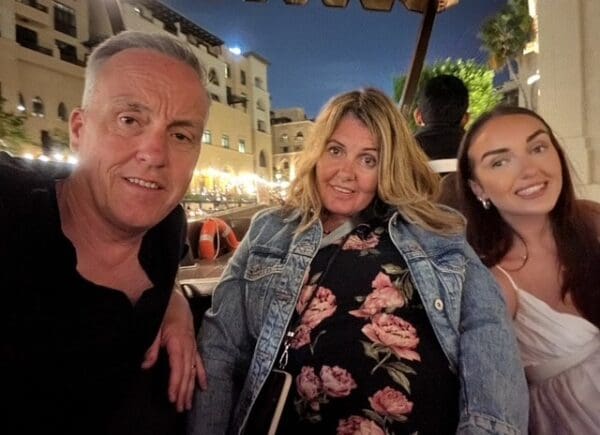
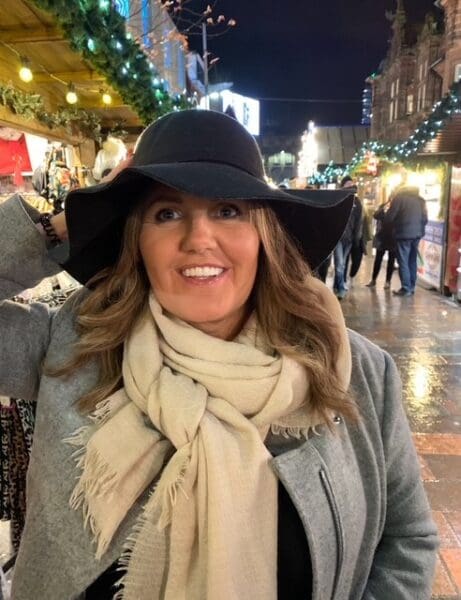
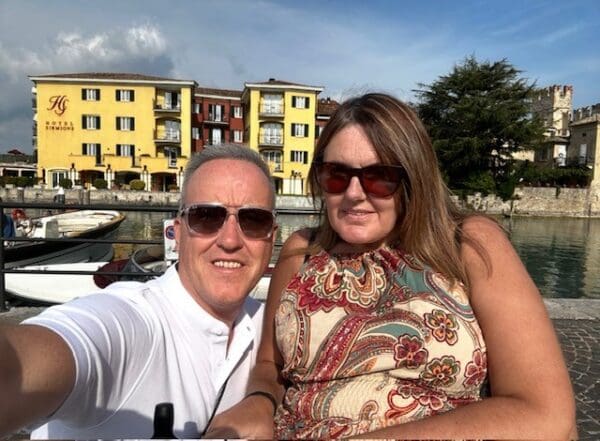
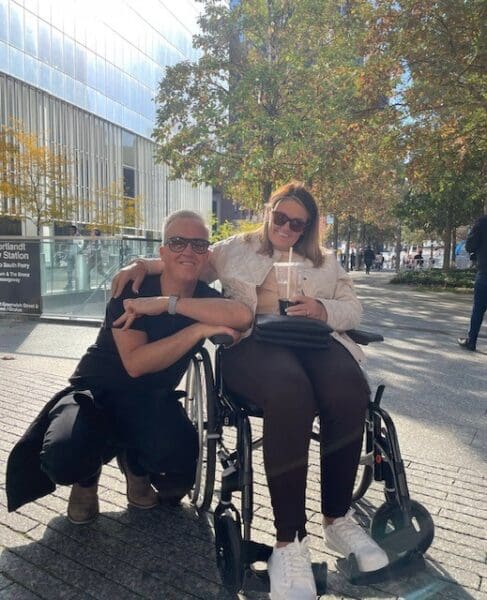
Disclaimer: The views and opinions expressed in the stories published on these pages are those of the authors and do not necessarily reflect the official policy or position of the MSA Trust.
Recent Stories

Living with MSA – Gill’s story
13 Feb 2025 | 0 comments

Life with MSA – Christina’s Story
3 Dec 2024 | 2 comments

Caring for My Mum – Millie’s Story
12 Nov 2024 | 6 comments

I’m so sorry to hear about your partners diagnosis. My mum was also diagnosied with young onset Parkinson’s at the age of 49 in 2017 and only diagnosed with MSA less then 2 years ago. You described it perfectly how the roles change to carer and how family and friends drift away with some being closer than ever. I hope you are doing ok, thank you for sharing.